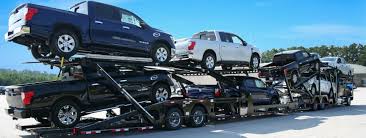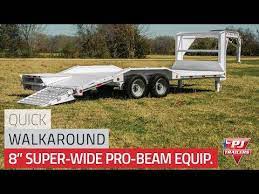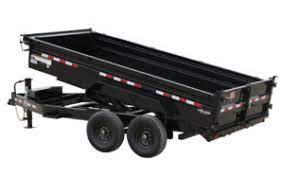When you’re driving your car, you might not think about the fact that you might be liable for someone else’s damage if something happens. But what if you were in a car accident and the driver behind you was at fault? In that case, you could be liable for their damages too. Car hauler insurance is a type of insurance policy that can help protect you from this kind of situation. In this article, we’ll explain the different versions of car hauler insurance and what they cover.
Types of Car Hauler Insurance
The different types of car hauler insurance policies can cover a variety of risks and costs for the vehicle and driver.
The policies can include: general liability, property damage, automobile liability, trucking, transit and cargo endorsements.
Each policy offers different coverage and benefits. It is important to compare the different types of policies to find the right fit for your needs.
For example, a transit endorsement may only cover you while driving the vehicle for transportation purposes. A trucking endorsement may include coverage while transporting goods or passengers.
How Car Hauler Insurance Works
The different versions of car hauler insurance work a little differently, but they all have one thing in common – they protect the truck and its cargo.
Flat-rate policies are typically the most cost-effective, as they only cover loss or damage to the truck itself. This type of policy is good for small businesses that only transport cars and don’t do any other types of cargo.
Loss-of-use policies offer more coverage, including protection against theft, while liability policies will cover you if someone is injured while in your truck. These policies are usually best for companies that transport a variety of items, including freight and large vehicles.
Coverage for Car Haulers
When it comes to car hauling, there are a few different versions of insurance that you need to be aware of. Here’s a breakdown of each:
1) Liability insurance: This type of coverage protects you from being held liable for any accidents that occur while you’re transporting cars.
2) Collision insurance: This type of policy covers you if your truck is involved in an accident.
3) Theft insurance: This will help cover any losses that happen when your truck is stolen.
4) Comprehensive coverage: This will provide coverage for both property damage and liability in the event of an accident.
If you’re looking for an all you can eat sushi resort, look no further than these five destinations. Each of these resorts offers a variety of sushi rolls and other Japanese cuisine options. You’ll be able to indulge in your sushi cravings without ever feeling over-stuffed or guilty.
Choosing the Right Car Hauler Insurance
When you’re looking for car hauler insurance, it’s important to choose the right policy for your needs. There are several different versions of car hauler insurance, so it can be hard to know which one is right for you. Here are some of the most common versions:
1. General liability insurance covers you if someone is injured or damages property while your vehicle is being hauled.
2. Liability insurance covers you if you’re at fault in an accident.
3. Auto transport liability insurance protects both the driver and the car hauler in case of an accident while transporting a car.
4. Collision coverage pays for damage to your vehicle if it’s involved in a collision with another vehicle or object.
5. Uninsured motorist coverage helps to cover damages from an accident with a driver who doesn’t have car hauler insurance.
What to do if You are Injured in a Car Hauling Incident
If you are involved in a car hauling incident, there are a few things that you should do in order to protect yourself. The first thing to do is to gather as much information as possible about the incident. This includes learning what type of truck was used, the make and model of the truck, the driver, and any witnesses. Next, you should call your insurance company and inform them of what happened. Finally, if you are injured in the incident, you should seek medical attention immediately.
Car Hauler

There are three types of car hauler insurance: commercial general liability, property damage, and product liability. Each type offers different coverage and rates.
Commercial general liability insurance protects a car hauler from lawsuits filed by individuals who were injured or harmed in some way while using the car hauler’s services. Coverage includes costs for medical expenses, lost wages, and other damages. Property damage insurance covers damage to the car hauler’s equipment, vehicles, and facilities caused by the transport of cargo. Product liability insurance covers any accidents that occur while transporting products, such as hazardous materials.
Each type of car haulers is subject to different regulations and has its own set of requirements that must be met in order to qualify for coverage. For example, commercial general liability insurers typically require that a company have a minimum amount of annual business activity.
Car haulers should consult with an insurance agent to determine the best type of coverage for their operation.
8″ Pro-Beam™ Super-Wide Equipment (H6)

Here are the three most common types of car hauler insurance:
1. Pro-Beam™ Super-Wide Equipment (H) coverage provides protection for your car and equipment in the event of a collision. This coverage is available in both personal injury and property damage versions.
2. Collision coverage provides protection for your car and cargo in the event of a collision. This coverage is available in both personal injury and property damage versions.
3. Loss of use coverage provides compensation for lost income due to a period of downtime due to a collision. This coverage is available in both personal injury and property damage versions.
It’s important to choose the right type of car hauler insurance for your business. All three types of coverage provide valuable protection for your cars and equipment.
10″ Pro-Beam™ Equipment (H5)

There are several different types of car haulers insurance, and each one comes with its own benefits and drawbacks. Here are the three most common versions of car hauler insurance:
1. Pro-Beam™ Equipment (H) – This type of insurance protects car haulers against losses caused by collisions with other vehicles or objects on the road. It also covers damages to the car hauler’s equipment, such as conveyors or loaders.
2. Commercial Auto Haulers Insurance – This type of insurance covers all kinds of accidents that happen while a car is being transported, including accidents with other vehicles, equipment, and pedestrians.
3. Personal Auto Haulers Insurance – This type of insurance only covers personal injuries that occur while a car is being transported. It doesn’t cover damage to property or accidents with other vehicles or objects on the road.
When you are in the market for car hauler insurance, it is important to be aware of the different versions available. Not all policies are created equal and it is important to choose the right one for your needs. Here are three types of car hauler insurance that you should be aware of:
What Are The Different Versions Of Car Hauler Insurance?
Car hauler insurance is a type of coverage that protects the owner against damage caused by working with motor vehicles. This article will provide an overview of what types of car hauler insurance exist and how they are different from one another.
What is Car Hauling Insurance?
There are many types of car hauling insurance policies available to protect both the trucker and the cargo. Each policy has its own unique benefits and requirements, so be sure to read the details carefully before choosing one.
The most important factor to consider when choosing car hauling insurance is the value of your cargo. You may be able to get coverage for up to $100,000 per accident, but you’ll need to weigh the cost of that coverage against the potential damage your cargo could suffer in a crash.
It’s also worth checking the coverage that your existing auto insurance provides. Many truckers add Car Hauling Insurance as an endorsement to their policy, so make sure you’re aware of any limits on coverage that might exist.
Finally, it’s important to note that not all car haulers are covered by the same policies. Make sure you know which carriers are licensed and insured to transport hazardous materials before selecting a company.
What are the Different Types of Car Haulers Insurance?
There are a few different types of car haulers insurance, and each is meant for a different purpose. Here’s a look at the most common types:
1. Commercial Car Hauler Insurance: This type of insurance is meant for businesses that haul large numbers of cars. It may cover things like property damage, bodily injury, and even death.
2. Personal Auto Transport Insurance: This type of insurance is typically needed when you’re transporting your own car. It covers things like liability and property damage, as well as accidents that happen while you’re driving the vehicle.
3. Rental Car Hauler Insurance: This type of insurance is typically only necessary when you’re hauling rental cars. It may cover things like liability and damage to the rental car, as well as accidents that happen while you’re transporting it.
4. Collision Damage Waiver (CDW): This type of insurance covers damage to your vehicle that’s caused by another driver. It usually requires that you have collision coverage on your auto policy as well.
5. Loss Control Coverage: This type of coverage protects your business from financial ruin if something bad happens while you’re transporting cars. It may include things like
What do You Need to Know About Purchasing Car Hauler Insurance?
When hauling a car with a trailer, you may be subject to additional risks not typically associated with driving a car. This includes the potential for damage to your vehicle and cargo, as well as personal injury. Make sure you understand the different versions of car hauler insurance before purchasing it, so you can be properly protected in the event of an incident.
The most fundamental type of car hauler insurance is liability insurance. This covers you financially if someone is injured while in your care, regardless of whether you were at fault. Most states also require second-party insurance, which provides coverage for people who are not personally involved in an accident but whose property is damaged. This type of coverage is especially important if the person you are transporting is uninsured or has limited coverage.
Additional types of coverage that may be necessary include rental car insurance and roadside assistance. Rental car insurance will cover damage to the vehicle while it’s being rented, and roadside assistance can help get your vehicle back on the road if it breaks down. Be sure to check with your carrier about specific provisions that may be included in your policy.
Protect yourself and your cargo by understanding the
How Much is a Piece of Car Hauler Insurance Coverage Worth?
There are a few different versions of car hauler insurance coverage, and the cost of each can vary quite a bit. Here’s a look at what you might be paying for:
A basic policy will cover the vehicle and its cargo, but won’t include any additional protections like collision or comprehensive coverage. This can cost as little as $100 per year.
There are many interesting and amazing tips and suggetions about health that you may not know. for example health screening Whether you’re interested in health, food sources, or natural history, you’ll find the information you need on About Health.
A more comprehensive policy will include things like loss-of-use coverage, which would reimburse you for lost earnings if your vehicle is out of commission because of an accident with your cargo. This type of policy can run you around $300 per year.
And finally, you could opt for something called combined liability and wrecker service, which would give you coverage for both your vehicle and cargo in the event of an accident. This type of policy can cost around $1,000 per year. So it’s worth doing some research to see what kind of coverage is best for your needs.
Conclusion
If you’re in the market for car hauler insurance, there are a few things to keep in mind. First, make sure you understand the different types of coverage that are available. Second, be sure to compare prices and policies to find the best deal. And third, be aware of any special requirements that your specific car hauler may have (such as being registered and insured in your state). By taking these steps, you can easily find the right policy for your needs and protect yourself from potential financial disaster.


